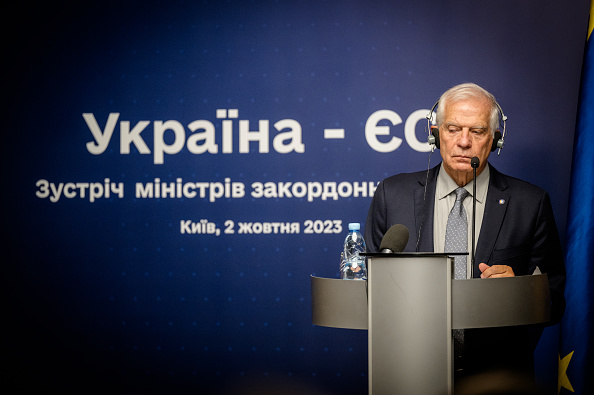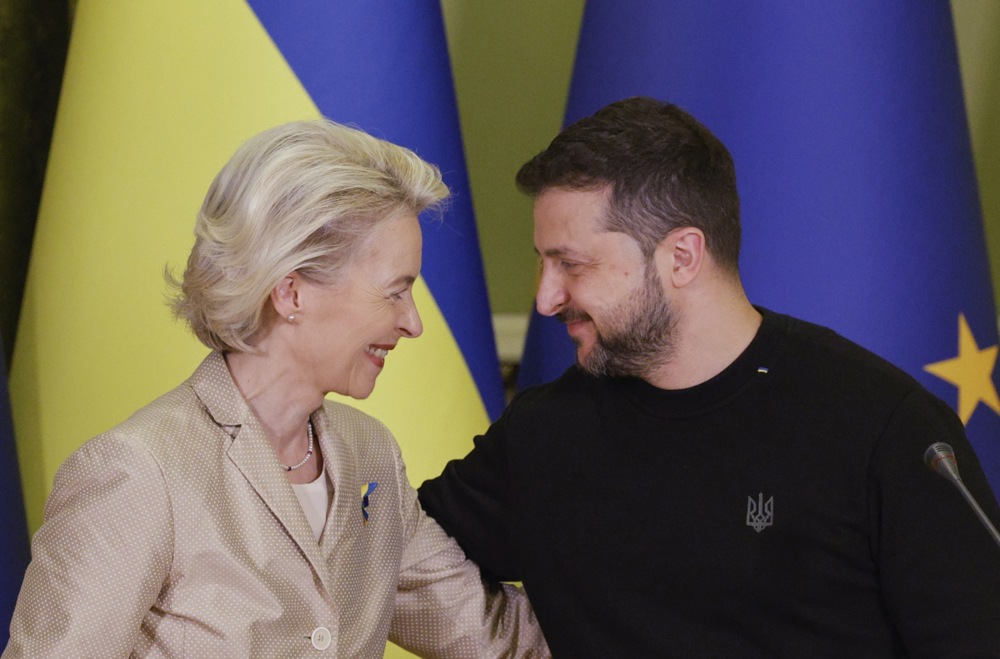The European Union will miss its target of supplying Ukraine with 1 million artillery shells and missiles by next March, German Defence Minister Boris Pistorius said on Tuesday.
Arriving at a meeting of EU defence ministers in Brussels, Pistorius also questioned the wisdom of having set the target in March this year, with a 12-month deadline.
Pistorius’s comments were the first public admission by a senior European minister that the target would not be met, although diplomats and officials have been expressing scepticism privately for months about the goal.
The target was set in response to Ukraine’s urgent and ongoing need for 155 millimetre artillery shells, which have become a key element in its fight against Russia’s invasion as the conflict descended into an intense war of attrition.
“I didn’t promise 1 million rounds, and that was on purpose. The right question to be asked would be whether 1 million was ever a realistic goal,” Pistorius told reporters.
“There were voices that warned: ‘You better watch out, 1 million is easily said, the money is available, (but) the production must be there’. These warning voices have been proven right now, unfortunately,” he said.
“It is safe to assume that the 1 million rounds will not be reached.”
Some officials have said that European industry did not have the production capacity to meet the target.
But some have also argued it was still worth setting an ambitious goal that encouraged countries to place orders and companies to invest in ramping up capacity.
Other ministers arriving at the meeting did not go as far as Pistorius, but did not contradict him.
EU foreign policy chief Josep Borrell said the bloc had provided more than 300,000 artillery shells and missiles under the first track of the scheme, which involved EU member states delivering from their own stockpiles.
He said the focus was now on the second element of the scheme – EU countries ordering new shells from industry under a joint procurement initiative. The EU was trying to get a better sense of how many shells that would yield, he said.
“It’s an interaction between the industry and the member states. The work is in process,” he told reporters.
The EU’s European Defence Agency said in late September that seven EU countries had ordered ammunition under the scheme. It did not provide the value or volume of the orders, citing confidentiality.
Borrell suggested part of the problem was that the European defence industry exported some 40 per cent of its output to countries outside the EU.
“Maybe what we have to do is to try to shift this production to the priority one, which is the Ukrainians,” he said.
Thierry Breton, the EU commissioner for industry, said arms companies were making progress in ramping up production.
He said a separate target of boosting European production of 155-millimetre shells to 1 million a year would be met.





